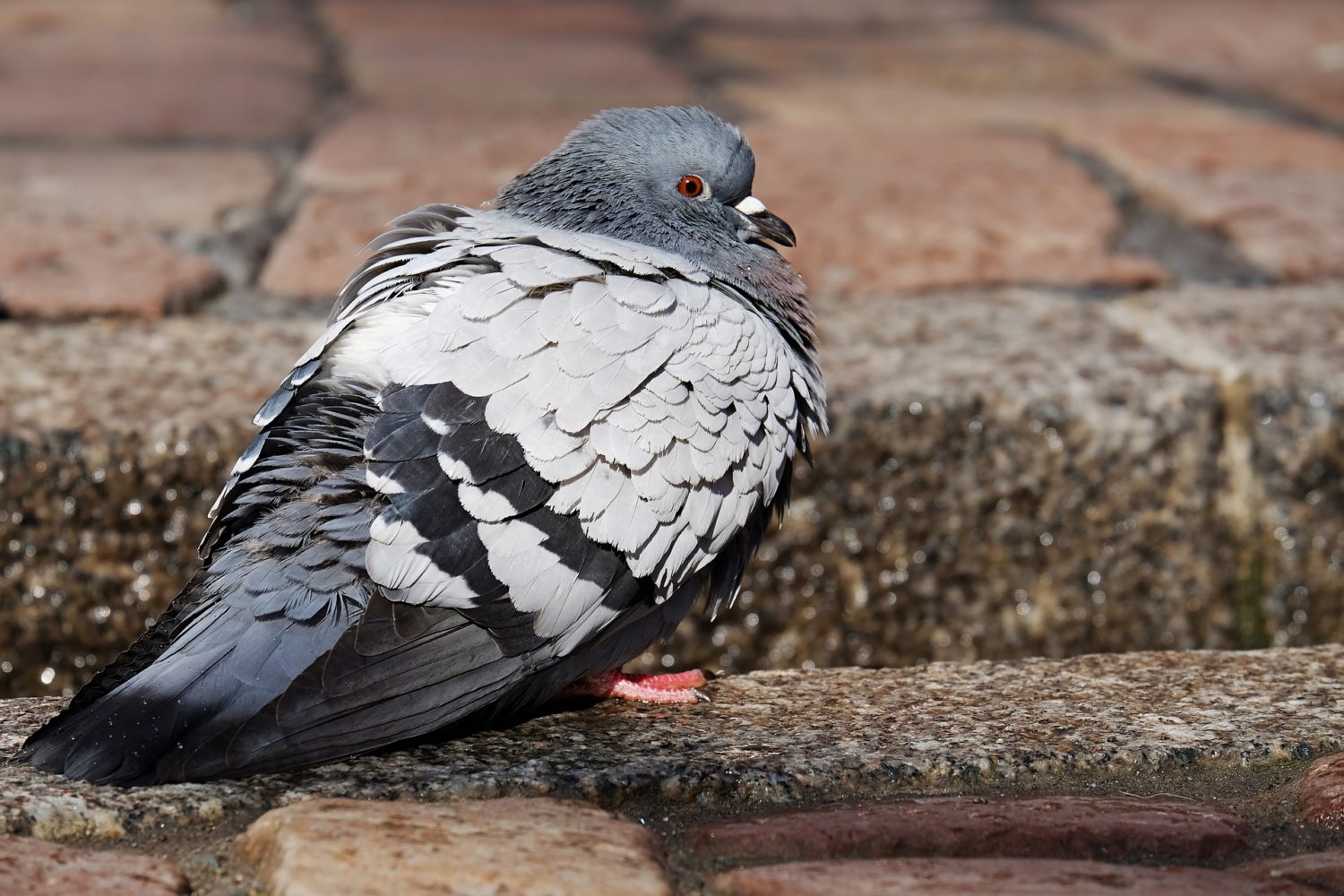Are Pigeons Dangerous?
by
In January 2019, a child died in a Scottish hospital after developing a fungal infection caused by exposure to pigeon droppings. An elderly patient also died in the same hospital of another condition that was exacerbated by exposure to pigeon droppings. It was determined that both patients were exposed to the contaminants via the ventilation system, which was found to contain pigeon droppings. These deaths brought to the forefront a question that many people who are living with pigeon infestations have: in addition to being disruptive, are pigeons actually dangerous? Here are the facts you need to know.
Pigeon droppings contain bacteria and fungi that can cause disease.
Exposure to pigeon droppings can lead to a number of different diseases. Some of the most common infections associated with pigeons are:
· E. coli: E. coli infections are usually the result of pigeon droppings being present in water or in food that is later consumed. This infection causes nausea, abdominal cramps, fever, and vomiting.
· Histoplasmosis: This is a dangerous fungal infection that affects the lungs, or rarely, other parts of the body. It causes flu-like symptoms, including fever, shortness of breath, chest pain, fatigue, and loss of appetite. It can be fatal in severe cases.
· Cryptococcus: This is another fungal infection that affects the lungs and can spread to the brain. In its early stages, it can cause a cough, chest pain, fever, and shortness of breath. When it spreads to the lungs, it causes headaches, neck pain, changes in behavior, confusion, and sensitivity to light. It can also be fatal.
· Psittacosis: Psittacosis is a bacterial infection that causes fever, headaches, a rash, and can lead to pneumonia, if left untreated.
· Candidiasis: This fungal infection can affect multiple parts of the body, including the mouth, lungs, urogenital tract, and skin. This infection may require prolonged periods of antifungal medications to treat.
· Salmonellosis: Pigeon droppings may contain the bacteria salmonella, which can cause this infection. Typically, people are exposed to these bacteria when pigeon droppings come into contact with food or food preparation surfaces. This infection causes nausea, vomiting, and abdominal cramps.
Pigeons also carry other potential health risks.
It is not just the droppings of pigeons that are dangerous. Pigeons themselves can carry mites and fleas, which can then attach to your pets or enter your home, causing skin irritation and itchiness. They can also spread infections through bites that are dangerous to both people and pets.
Pigeons can also carry West Nile virus. Although people are unlikely to contract West Nile virus directly from pigeons, it is still important to avoid removing any dead pigeons from your property without the help of a professional for this reason.
People with weakened immune systems are most at risk.
The infections that pigeons are likely to transmit do not affect everyone at the same rate. Many healthy adults are able to fight off infections caused by exposure to bacteria and fungi from pigeon droppings. If they do become ill, then they are likely to have very mild infections.
However, although it is always possible for someone who is healthy to become very ill from these conditions, other people are more at risk. Infants and children are more likely to experience severe symptoms when they are exposed to a disease via pigeon droppings. People who are immuno-compromised, such as people with HIV or who are undergoing chemotherapy, also have a higher risk of developing severe symptoms and complications. Lastly, the elderly are prone to severe symptoms from pigeon-related diseases.
Even without exposure to a disease, some people may have allergy symptoms, including respiratory problems, rashes, and itchiness, as a result of a pigeon infestation near their home or business.
For safety reasons, only professionals should handle pigeon control.
If you have a pigeon infestation, it’s important to deal with the issue as soon as possible. However, trying to get rid of pigeons and clean up their droppings on your own is not safe. Pigeon control professionals are trained in safe management techniques and have the proper equipment required to clean up after a pigeon infestation safely.
One of the biggest risks of cleaning up pigeon droppings on your own is that you could release dust into the air that contains bacteria and fungi that cause infection. Not only would you be at risk from inhaling the bacteria and fungi yourself, but you could also inadvertently introduce the contaminants into the HVAC system in your home, allowing them to spread into your indoor air and putting your family at risk.
Of course, professional pigeon control is also helpful because it is effective at not only getting the pigeons off your property but keeping them off as well. Many people who try DIY techniques may scare off the pigeons temporarily but find that they return.Protect your health and that of your family, and call Premier Pigeon Control to deal with pigeon infestations on your property. No matter how persistent your infestation has been, our experienced pigeon control experts can get rid of the birds on your property for good and safely clean up all signs of their presence. Talk to a team member today about pigeon control in Tucson by calling (520) 882-0078 or in Phoenix by calling (480) 437-4093.
